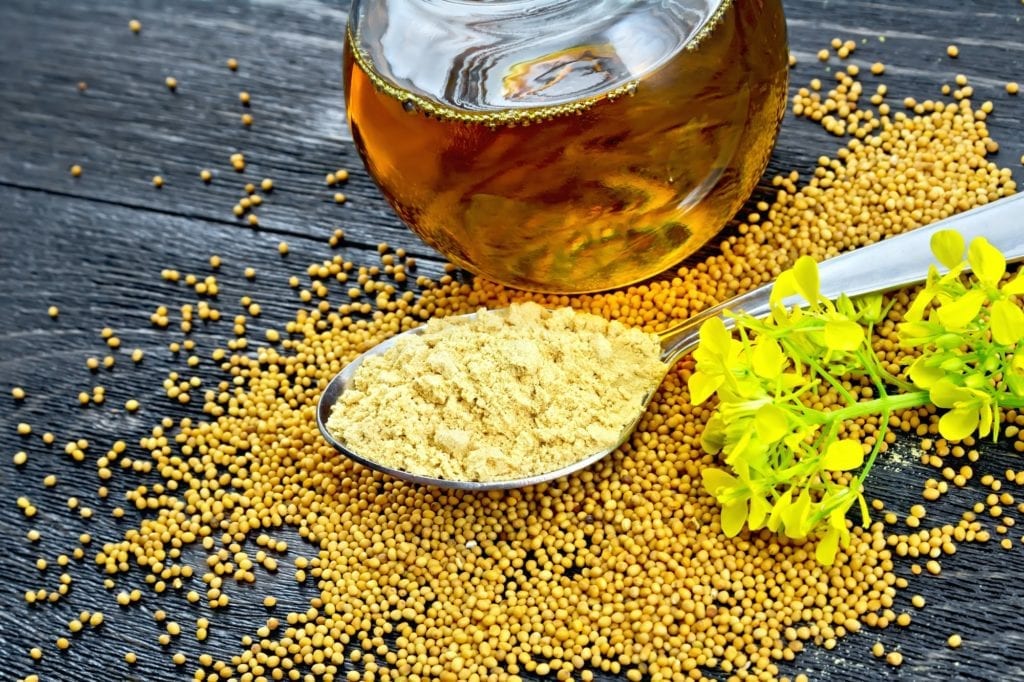
There are two different oils that the term ‘mustard oil’ refers to. Both are made from mustard seed and each has its own uses:
- Culinary mustard oil is a fatty vegetable oil, made from pressed seeds.
- The essential oil, made by grinding seeds with water and extracting the oil by distillation, is used therapeutically for massage.
Uses for mustard oil
Mustard oil is the most popular oil in Indian cooking and is used to make many traditional dishes. It has a pungent, hot and nutty taste and is used to marinate and flavour food and also in the cooking process as a frying oil.
Its popularity has declined over the years due to cheaper vegetable oils being made more readily available however it is still used in traditional cooking in parts of Gujarat, Bengal, Assam, Bihar, Orissa and Haryana.
Mustard oil has other cultural uses in India:
- It is poured on the threshold of a home when someone important visits for the first time, or a member of the family returns after a long absence or has something to celebrate.
- During the Punjabi wedding preparation ceremony it is used as part of home-made cosmetics.
- Used as fuel for lighting lamps on festive occasions and during Punjabi weddings.
- Known to be extremely beneficial in improving the condition of hair when massaged into the scalp.
In the West mustard oil is used with caution due to its high levels of erucic acid which has been shown to cause fatty deposits in the heart. This side effect is rare but limits the amount of erucic acid allowed in food products as a legal requirement.
Health benefits
In regions where mustard oil is still used in a traditional manner, mustard oil may afford some protection against cardiovascular diseases. It is low in saturated fat compared to other cooking oils and along with rapeseed oil is recommend as part of a healthy diet to help lower cholesterol.
Mustard oil’s anti-inflammatory properties can help ease joint pain and ear ache.
Mustard contains magnesium which helps to clear up congestion in your chest and nose. Rubbing warm mustard oil over your neck, chest and nose can relieve respiratory infections.
Mustard oil can be massaged into the hair, significantly improving its look, making it appear shiny as well as stimulating growth; boil a cup of mustard oil with henna leaves, strain and bottle the oil and thoroughly massage the hair. It can also be used to relieve dandruff by combining one tablespoon of castor, coconut and mustard oil and massaging into the scalp. Leave overnight or for up to four hours and rinse thoroughly.

